TEDxOilSpill Speaker Lineup:
Sylvia Earle, called “Living Legend” by the Library of Congress and “Hero for the Planet” by Time, is an oceanographer, explorer, author and lecturer with a deep commitment to research through personal exploration. Earle’s work has been at the frontier of deep ocean exploration for four decades. Earle has led more than 50 expeditions worldwide involving more than 6,000 hours underwater.
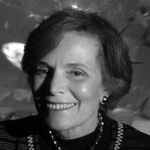 Sylvia Earle, called “Her Deepness” by the New Yorker and the New York Times, “Living Legend” by the Library of Congress and “Hero for the Planet” by Time, is an oceanographer, explorer, author and lecturer with a deep commitment to research through personal exploration.
Sylvia Earle, called “Her Deepness” by the New Yorker and the New York Times, “Living Legend” by the Library of Congress and “Hero for the Planet” by Time, is an oceanographer, explorer, author and lecturer with a deep commitment to research through personal exploration.
Earle’s work has been at the frontier of deep ocean exploration for four decades. Earle has led more than 50 expeditions worldwide involving more than 6,000 hours underwater. As captain of the first all-female team to live underwater, she and her fellow scientists received a ticker-tape parade and White House reception upon their return to the surface. In 1979, Sylvia Earle walked untethered on the sea floor at a lower depth than any other woman before or since. In the 1980s she started the companies Deep Ocean Engineering and Deep Ocean Technologies with engineer Graham Hawkes to design and build undersea vehicles that allow scientists to work at previously inaccessible depths. In the early 1990s, Dr. Earle served as Chief Scientist of the National Oceanographic and Atmospheric Administration. At present she is explorer-in-residence at the National Geographic Society.
Sylvia Earle is a dedicated advocate for the world’s oceans and the creatures that live in them. Her voice speaks with wonder and amazement at the glory of the oceans and with urgency to awaken the public from its ignorance about the role the oceans plays in all of our lives and the importance of maintaining their health.
Philippe Cousteau is the son of Jan and Philippe Cousteau Sr., and the grandson of Captain Jacques-Yves Cousteau. As a member of the legendary family, Philippe is continuing the work of his father through EarthEcho International, the non-profit organization he founded with his sister and mother and of which he serves as CEO. Philippe went diving into the Gulf oil spill, witnessing first hand the damage being done.
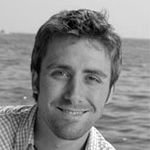 Philippe Cousteau is the son of Jan and Philippe Cousteau Sr., and the grandson of Captain Jacques-Yves Cousteau. As a member of the legendary family, Philippe is continuing the work of his father through EarthEcho International, the non-profit organization he founded with his sister and mother and of which he serves as CEO.
Philippe Cousteau is the son of Jan and Philippe Cousteau Sr., and the grandson of Captain Jacques-Yves Cousteau. As a member of the legendary family, Philippe is continuing the work of his father through EarthEcho International, the non-profit organization he founded with his sister and mother and of which he serves as CEO.
In addition to his work with EarthEcho International, Philippe is co-founder of Azure Worldwide a strategic environmental design, development and marketing company. Projects include work on environmentally-friendly resorts and destinations as well as environmental programming for eco-entertainment attractions from Washington DC to Bahrain and from Singapore to Florida.
Philippe is the Chief Ocean Correspondent for both the Animal Planet and Planet Green channels, where he works on various ocean and water-focused documentary programs. Along with his sister Alexandra Philippe is the host of Blue August 2009, an entire month of programming on Planet Green Channel that celebrates our oceans. He was host of Loch Ness Revealed a one hour special which aired on Discovery Channel in the fall of 2009. In addition, he is the Chief Spokesperson for Environmental Education for Discovery Education; the #1 provider of K-12 broadband-delivered educational content to U.S. schools. Philippe is currently a host for Oceans, a new High Definition Discovery Channel/BBC series which premiered in the UK in 2008 and will premier in the US on Discovery Channel in the spring of 2010.
Philippe serves on the Board of Directors of The Ocean Conservancy, Marine Conservation Biology Institute, and the National Environmental Education Foundation, as well as the Advisory Board of Discovery Communications Inc.’s Planet Green. He holds a Master’s degree in history from the University of St. Andrews.
Dave Gallo works to push the bounds of oceanic discovery. Active in undersea exploration, he was one of the first oceanographers to use a combination of manned submersibles and robots to map the ocean world with unprecedented clarity and detail. Gallo is now working with director James Cameron and other undersea experts on ideas to stop the oil spill.
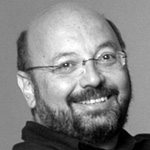
Dave Gallo works to push the bounds of oceanic discovery. Active in undersea exploration, he was one of the first oceanographers to use a combination of manned submersibles and robots to map the ocean world with unprecedented clarity and detail. Gallo is now working with director James Cameron and other undersea experts on ideas to stop the oil spill.
He was a co-expedition leader during an exploration of the RMS Titanic and the German battleship Bismarck, using Russian Mir subs. On behalf of the Woods Hole labs, he appears around the country speaking on ocean and water issues, and leading tours of the deep-ocean submersible Alvin.
Dr. Susan Shaw is an internationally recognized marine toxicologist, author, explorer, and founder/director of the Marine Environmental Research Institute. Shaw is applying her expertise to the Gulf catastrophe by launching an independent, region-wide investigation of the toxic impacts of oil and dispersants on marine life and human health.
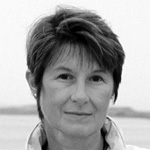
An outspoken and influential voice on ocean pollution, Dr. Shaw dove in the Gulf oil slick in May and observed first-hand how oil and dispersants are impacting life in the water column. The experience prompted her to call for a collaborative, Gulf-wide effort to track effects as the toxins ripple through the food web.
For two decades, Shaw has conducted large-scale ecotoxicological investigations on the effects of hundreds of environmental chemicals in marine animals. She is credited as the first scientist to show that flame retardant chemicals in consumer products have contaminated marine mammals and commercially important fish stocks in the northwest Atlantic Ocean. Her research has influenced policy decisions in the US and abroad, including the Maine legislature’s decision to ban the neurotoxic flame retardant decabromodiphenyl ether (Deca), and the subsequent US phase-out of the chemical.
In 2009, Shaw published the first comprehensive review of flame retardant chemicals in marine ecosystems of the American continents. She serves on the International Panel on Chemical Pollution, a select group of scientists urging policymakers to improve management of toxic chemicals.
Shaw is a keynote speaker on the ocean crisis and chemical pollution in the US, Europe, and Asia, and is amplifying the ocean message as Chair of the International Explorers Club’s State of the Oceans Forums. She has recently been nominated to be a Woodrow Wilson visiting fellow.
Andrew Sharpless is the CEO of Oceana, the world’s largest international nonprofit dedicated to ocean conservation. A graduate of Harvard College, Harvard Law School, and the London School of Economics, Sharpless was one of the founding managers of RealNetworks, the Seattle-based pioneer in the field of online music and video play-back technology.
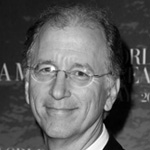
Andrew Sharpless is the CEO of Oceana, the world’s largest international nonprofit dedicated to ocean conservation. A graduate of Harvard College, Harvard Law School, and the London School of Economics, Sharpless was one of the founding managers of RealNetworks, the Seattle-based pioneer in the field of online music and video play-back technology. He also worked for five years at McKinsey & Co., serving the needs of a variety of corporate, non-profit and governmental clients. As Vice President of the Museum of Television and Radio in New York, he helped transform that unique facility when it opened its new building in 1991. Most recently, Sharpless built Discovery.com – the online division of Discovery Channel, The Learning Channel, Animal Planet, Discovery Health and The Travel Channel – into an award-winning internet destination.
Based on his years of experience leading some of the nation’s most cutting edge businesses, advocacy organizations and non-profits, Sharpless brought a campaign-based management model to Oceana: “The downfall of many environmental organizations is that they spread themselves too thin and do just enough to fail. We set up Oceana as a campaign-focused organization that sets tangible policy goals and directs the attention and resources we need to succeed.”
Sharpless has made building a large online constituency of people who believe in sustaining our ocean fisheries an important overall goal for Oceana. “All we can do right now is slow down the pace of destruction of the ocean, but once we build the constituency – and the Internet gives us a huge opportunity to do this quickly and relatively affordably – we can win the changes that will keep the ocean and its wildlife alive forever.”
For over 20 years, Mr. Henry has been president of The Curtis and Edith Munson Foundation, a private foundation that supports marine conservation with an emphasis on fisheries management, marine protected areas, and coral reefs. In addition, Mr. Henry is an accomplished underwater photographer. As a contract photographer for the National Geographic Society, he has collaborated with Sylvia Earle.
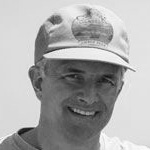 For over 20 years, Mr. Henry has been president of The Curtis and Edith Munson Foundation, a private foundation that supports marine conservation with an emphasis on fisheries management, marine protected areas, and coral reefs. The foundation also funds environmental conservation programs in Florida and Alabama.
For over 20 years, Mr. Henry has been president of The Curtis and Edith Munson Foundation, a private foundation that supports marine conservation with an emphasis on fisheries management, marine protected areas, and coral reefs. The foundation also funds environmental conservation programs in Florida and Alabama.
Mr. Henry is also the founder and a current director of The Ocean Foundation, chairman of EarthEcho International, and a director of World Wildlife Fund-Philippines, and the International League of Conservation Photographers. Mr. Henry has served on the board of the World Wildlife Fund-US, The Ocean Conservancy, and a number of advisory boards of conservation organizations.
In addition, Mr. Henry is an accomplished underwater photographer. As a contract photographer for the National Geographic Society, he collaborated with Dr. Sylvia Earle on Wild Ocean, a large format book on the national marine sanctuary system that includes the Flower Gardens NMS off Texas and the Florida Keys NMS. Mr. Henry’s images have been published in various magazines, newspapers, and other media, along with many non profit publications. In 2001, to promote the use of high quality photographs for marine conservation issues, he created Marine Photobank (marinephotobank.org), a non-profit stock photo website. The site has over 1,000 contributing photographers, 4,500 images, and 4,700 non profit members (including universities, labs, and government agencies), representing over 100 countries, and has 350 media download members. It is now part of Seaweb.
He is a member of the Explorers Club in New York, and the Consultative Group on Biodiversity (a group of foundations working on environmental issues) where he helped create the Marine Working Group to focus on marine issues.
Mr. Henry received a B.A. from Denison University and an M.B.A. from Northwestern University.
Amory Lovins is Chairman and Chief Scientist of the Rocky Mountain Institute. For four decades he has worked in energy policy and related areas. Lovins worked professionally as an environmentalist in the 1970s and since then as an analyst of a “soft energy path” for the United States and other nations. Time magazine named Lovins as one of the world’s 100 most influential people.
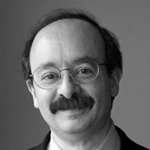
Amory Lovins is Chairman and Chief Scientist of the Rocky Mountain Institute. For four decades he has worked in energy policy and related areas. Lovins worked professionally as an environmentalist in the 1970s and since then as an analyst of a “soft energy path” for the United States and other nations.
He has promoted energy efficiency, the use of renewable energy sources, and the generation of energy at or near the site where the energy is actually used. Lovins has also advocated a “negawatt revolution” arguing that utility customers don’t want kilowatt-hours of electricity; they want energy services. In the 1990s, his work with Rocky Mountain Institute included the design of an ultra-efficient automobile, the Hypercar.
Lovins has received ten honorary doctorates and won many awards. He has provided expert testimony in eight countries, briefed 19 heads of state, and published 29 books. These books include Winning the Oil Endgame, Small is Profitable, Factor Four, and Natural Capitalism. In 2009, Time magazine named Lovins as one of the world’s 100 most influential people.
Phil Radford is the Executive Director of Greenpeace USA. He has a background in grassroots organizing, campaign planning, and energy policy. As Grassroots Director, it was Phil’s vision and leadership that built Greenpeace’s $9 million Grassroots Program and our cutting edge online to on-the-ground organizing, as well as a robust student organizing and training program.
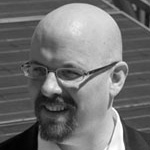
Phil Radford is the Executive Director of Greenpeace USA. He has a background in grassroots organizing, campaign planning, and energy policy. As Grassroots Director, it was Phil’s vision and leadership that built Greenpeace’s $9 million Grassroots Program and our cutting edge online to on-the-ground organizing, as well as a robust student organizing and training program and the national street and door-to-door canvass program.
From 1999 to 2001 Radford was Field Director for Ozone Action, an organization dedicated to working on the atmospheric threats of global warming and ozone depletion. As field director, Radford planned and executed a number of grassroots campaigns, including a campaign during the 2000 presidential primaries that convinced Senator John McCain to push for action on global warming.
Radford also managed the grassroots mobilization for the Global Warming Divestiture Campaign, which forced Ford, General Motors, Texaco, and other companies to stop funding the Global Climate Coalition, which spread misinformation about global warming. He also brought 230 students to the Kyoto negotiations, where they convinced the U.S. delegation to stop pushing for nuclear energy in the Kyoto Protocol’s Clean Development Mechanism.
In 2001 Radford founded Power Shift, dedicated to promoting clean energy technologies in the marketplace and building a grassroots movement to push for global warming solutions. He served as Executive Director of Power Shift until he left for Greenpeace USA in 2003.
Before becoming Executive Director of Greenpeace USA, Radford served as the director of the organization’s Grassroots Program. In that capacity, he directed the organization’s street and door-to-door canvassers, online-to-offline organizing team, and student organizing and training programs.
Radford launched Greenpeace USA’s national canvassing program in 2006, and it quickly grew to include nearly 400 canvassers in almost 20 cities across the country. The program is responsible for bringing over 140,000 new members into Greenpeace USA since 2006.
Dr. Carl Safina is a prominent ecologist and marine conservationist and president of Blue Ocean Institute, an environmental organization based in Cold Spring Harbor, New York. He has also been a recreational fisherman since childhood. A winner of the prestigious Pew Fellowship, MacArthur Fellowship and Guggenheim Fellowship, Safina has written five books.
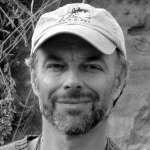
Dr. Carl Safina is a prominent ecologist and marine conservationist and president of Blue Ocean Institute, an environmental organization based in Cold Spring Harbor, New York. He has also been a recreational fisherman since childhood. “I love the hunt and know the thrill of the kill,” Safina told William J. Broad for the New York Times (September 22, 1998). “But I’m not sure we should be doing it. They [the fish] need a break.” After reaching the conclusion that, if overfishing were to continue at the current rate, entire populations of fish might cease to exist, Safina became an advocate for the very creatures he grew up hunting.
A winner of the prestigious Pew Fellowship, MacArthur Fellowship and Guggenheim Fellowship, Safina has written five books—Song for the Blue Ocean: Encounters Along the World’s Coasts and Beneath the Seas; Eye of the Albatross: Visions of Hope and Survival; Voyage of the Turtle: In Pursuit of the Earth’s Last Dinosaur; Nina Delmar: The Great Whale Rescue; and The View from Lazy Point: A Natural Year in an Unnatural World, coming this Fall 2010.
Reid Detchon is Vice President for Energy and Climate at the United Nations Foundation. He is also the executive director of the Energy Future Coalition, a broad-based non-partisan public policy initiative supported by the UN Foundation that seeks to bring about change in U.S. energy policy to address critical challenges related to the production and use of energy.
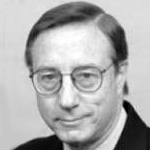
Reid Detchon is Vice President for Energy and Climate at the United Nations Foundation. He is also the executive director of the Energy Future Coalition, a broad-based non-partisan public policy initiative supported by the UN Foundation that seeks to bring about change in U.S. energy policy to address three critical challenges related to the production and use of energy: the political and economic security threat posed by the world’s dependence on oil; the risk to the global environment from climate change; and the lack of access of the world’s poor to the modern energy services they need for economic advancement.
From June 1999 through December 2001 Mr. Detchon served as director of special projects in Washington, D.C., for the Turner Foundation, managing a portfolio of major grants aimed at increasing the effectiveness of environmental advocacy and encouraging federal action to avert global climate change.
Previously he spent six years at Podesta Associates, a government relations and public affairs firm in Washington, D.C., where he was a principal. From 1989 to 1993 Mr. Detchon served as the principal deputy assistant secretary for conservation and renewable energy at the U.S. Department of Energy. Previously he was principal speechwriter for Vice President George H. W. Bush.
Mr. Detchon worked for five years in the U.S. Senate, advising Senator John Danforth of Missouri on energy and environmental issues and serving as his legislative director. He was a reporter for the Columbia Daily Tribune in Missouri from 1974 to 1980. He is a graduate of Yale University and lives in Bethesda, MD.
Dr. Ronald Atlas pioneered the field of bioremediation and showed that fertilizer application can hasten the rates of oil removal following oil spillages. He has worked on several major oil spills, including the Amoco Cadiz spill in Brittany, the IXTOC-1 spill in the Gulf of Mexico, the Exxon Valdez spill in the Gulf of Alaska, and the Kuwait oil spill following the first Gulf War.
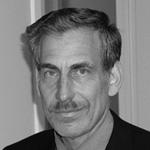
Dr. Ronald Atlas received his Ph.D. in Microbiology from Rutgers the State University in 1972 and currently is Professor of Biology and Co-director of the Center for Health Hazards Preparedness in the School of Public Health at the University of Louisville. He is former President of the American Society for Microbiology. He has chaired several committees for the National Academies of Science and the US Government, including NASA’s Planetary Protection Board.
He provides the US government insight on policy issues related to the bioterrorism and environmental quality. He has over 250 publications in areas covering various aspects of microbial ecology, molecular environmental detection of genetically engineered microorganisms and pathogens, bioterrorism, infectious diseases, and the fate of oil in marine environments. He has authored over 20 textbooks on general microbiology and microbial ecology.
His early research pioneered the field of bioremediation and showed that fertilizer application can hasten the rates of oil removal following oil spillages. He has worked on several major oil spills, including the Amoco Cadiz spill in Brittany, the IXTOC-1 spill in the Gulf of Mexico, the Exxon Valdez spill in the Gulf of Alaska, and the Kuwait oil spill following the first Gulf War.
He has served as a consultant to the US EPA and Exxon on the Exxon Valdez spill and continues to work as a consultant to Exxon on the microbial degradation of oil and the applicability of bioremediation. He brings to this meeting over 40 years of scientific research on the fate of oil in the sea and on oil-impacted shorelines.
A renowned visionary committed to renewable energy, Jigar Shah launched SunEdison in 2003 based upon a business plan he developed in 1999. That plan became the basis of the SunEdison model: Simplify solar as a service. Shah was tapped by Virgin mogul Richard Branson to head up the Carbon War Room, which harnesses the power of entrepreneurs to implement market-driven solutions to climate change.
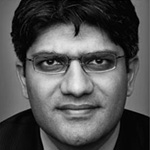
A renowned visionary committed to renewable energy, Jigar Shah launched SunEdison in 2003 based upon a business plan he developed in 1999. That plan became the basis of the SunEdison business model: Simplify solar as a service. This model changed the status quo, allowing organizations to purchase solar energy services under long-term predictably priced contracts and avoid the significant capital costs of ownership and operation of solar energy systems. Under Shah’s guidance, SunEdison pioneered the solar power services agreement (SPSA) model, which has turned solar services into a multi-billion dollar industry. SunEdison now has more solar energy systems and megawatts under management than any other company.
Shah was tapped by Virgin mogul Richard Branson to head up the Carbon War Room, which harnesses the power of entrepreneurs to implement market-driven solutions to climate change.
Shah is an expert on energy project finance, changing energy policy, working with entrenched stakeholders, convincing different type of customers to embrace energy technology. Today, Shah works closely with some of the world’s leading influencers and guides policy makers around the globe on key issues surrounding renewable energy, global warming and sustainability. Shah holds a BS in Mechanical Engineering from the University of Illinois, Champaign-Urbana, and an MBA from The University of Maryland. He sits on the boards of the Prometheus Institute and Greenpeace USA.
In the early 1970s John Francis gave up using motorized vehicles after witnessing the devastating effects of an oil spill in San Francisco Bay. Soon afterwards he took an even more radical step: a vow of silence that lasted 17 years, during which he undertook a pilgrimage by foot across America on behalf of the environment and world peace, earning a Ph.D. in environmental studies along the way.
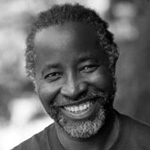
In the early 1970s John Francis gave up using motorized vehicles after witnessing the devastating effects of an oil spill in San Francisco Bay. Soon afterwards he took an even more radical step: a vow of silence that lasted 17 years, during which he undertook a pilgrimage by foot across America on behalf of the environment and world peace, earning a Ph.D. in environmental studies along the way. Through his silence and walking, he learned to truly listen, both to other people and the world around him.
Since ending his silence in 1990, Francis has served as a goodwill ambassador for the United Nations Environmental Program, contributed to the U.S. Coast Guard’s Oil Pollution Act of 1990, rewriting transportation regulations in the wake of the Exxon Valdez spill, and founded Planetwalk, a nonprofit environmental education organization. He relates the experience of his quiet protest in his book Planetwalker: 22 Years of Walking. 17 Years of Silence. Accompanied by his ever present banjo and his gentle but determined demeanor, Francis communicates a surprisingly pragmatic message of pilgrimage and social change.
Dr. Darron Collins joined WWF in 2001. A cultural anthropologist and an expert in ethnobotany, Darron has designed and implemented human-centered conservation programs for WWF in Latin America, Russia, China and Mongolia. His most recent endeavors involve using creative media to share WWF’s work with new, influential audiences and use storytelling to drive conservation on the ground.
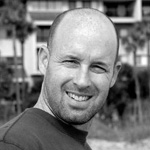
Darron has always been a river guy. The New Jersey native recalls very clearly his first time in a canoe, “I was in Vermont and it gave me a perspective that you just can’t get walking.” He was so taken with flowing water that for his undergraduate thesis he created and taught a class that combined whitewater boating with a study of river conservation techniques.
Darron joined WWF in 2001 as the regional forest coordinator for Latin America before serving as a senior conservation advisor, where he played a key role in developing WWF’s 2015 goals and strategy. An expert in ethnobotany, he now manages a conservation program that encompasses vast areas of Russia, China and Mongolia and is equal in size to the state of Alaska. The watershed includes the 3,000-mile-long Amur River – the largest undammed river in the eastern hemisphere – as well as a host of endangered species.
Mike Mendez has held a number of top industry positions at the forefront of the molecular biology revolution. In addition to serving as Director of Bioengineering at GenWay, Mr. Mendez was also associate director of Exploratory Research at Takeda Pharmaceuticals. There he established a new department that focused on novel platforms for over-expression, purification, and crystallization of membrane proteins.
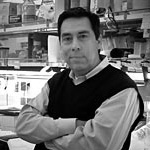
Mike Mendez has held a number of top industry positions at the forefront of the molecular biology revolution. In addition to serving as Director of Bioengineering at GenWay, Mr. Mendez was also associate director of Exploratory Research at Syrrx, Inc. (presently Takeda Pharmaceuticals). There he established a new department that focused on novel platforms for over-expression, purification, and crystallization of membrane proteins.
Mr. Mendez co-founded and led the technical program at MemRx, a structural biology company that focused on the structure determination of membrane proteins, specifically GPCRs. Mr. Mendez is widely regarded as one of the lead pioneers in the development of fully human antibodies and is the lead author and co-inventor of the Xenomouse platform technology that formed Abgenix, Inc., most recently acquired by Amgen for $2.2 billion. He created all the viral vectors for the Cell Genesys Platform technology, GVAX. Mr. Mendez has served as a genetic consultant and scientific adviser for numerous biotech and academic institutions, including Geron Corporation, Gentrol, Inc., Expression Systems, Aliva, Inc., and the California Institute of Technology. He is also the founder and principal scientist of Gryffin Consulting, Inc., a genetic engineering consulting firm specializing in the areas of gene therapy and antibody and membrane protein production.
Jackie Savitz is Campaign Director and Senior Scientist for Oceana’s Pollution Campaigns. She has shaped and led campaigns and projects dealing with global warming pollution from ships, mercury contamination of fish, and cruise ship pollution among other issues. Savitz has a background in marine biology and environmental toxicology combined with more than fifteen years of policy analysis experience.
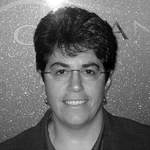
Jackie Savitz is Campaign Director and Senior Scientist for Oceana’s Pollution Campaigns. She has shaped and led campaigns and projects dealing with global warming pollution from ships, mercury contamination of fish, and cruise ship pollution among other issues. Savitz has a background in marine biology and environmental toxicology combined with more than fifteen years of policy analysis experience through which she has developed expertise on a variety of pollution issues involving toxic contamination, water pollution and air pollution.
Prior to working with Oceana, Savitz served as Executive Director of the Coast Alliance, a network of more than 600 organizations throughout the United States working to protect the coasts from pollution and development. There she ran campaigns dealing with sediment contamination, port deepening, polluted runoff and coastal development, including barrier island protection.
Earlier, Jackie worked as an environmental policy analyst with the Environmental Working Group in Washington, D.C. There her work focused on the public health effects of water and air pollution. In that capacity she authored a series of reports on point source discharges, air quality standards, fish contamination and medical waste disposal. Jacqueline also worked as an environmental scientist with the Chesapeake Bay Foundation where she worked on toxics and point source pollution affecting Chesapeake Bay.
Jacqueline holds an M.S. Degree in environmental science with emphasis in toxicology from the University of Maryland, Chesapeake Biological Laboratory and a bachelor’s degree in marine science and biology from the University of Miami, in Florida.
Jim Geringer was elected as Wyoming’s 30th governor in 1994 and completed his second term in January 2003. His advocacy for technology in government has centered on the end result of using technology to enhance citizen services. That advocacy has led Jim to join in a full-time capacity with Environmental Systems Research Institute (ESRI) the top provider of geographic information systems software.
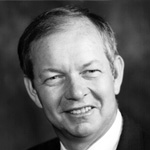
Governor Jim Geringer is a native of Wyoming, reared on the family farm near Wheatland. At Kansas State University he was involved in several activities and served as Student Body President. Through the Air Force ROTC program he was then commissioned as an officer in the United States Air Force. During his time on active duty, he worked as project officer on space programs integrating space boosters and satellites for both the Air Force and NASA, including the Global Positioning Satellite System, early warning systems and the Mars Viking Lander.
From 1983 to 1994, Geringer served in the Wyoming Legislature, including six years each in the House and the Senate. During that time, his full-time jobs included work as a contract administrator for the construction of a large coal-fired electric power plant and going into agriculture production full time. The Geringers built up their farming operation starting from scratch – the old-fashioned way.
Jim was elected as Wyoming’s 30th governor in 1994 and completed his second term in January 2003. During his time in office Geringer implemented strategic planning tied to performance based budgeting and when he left office, provided Wyoming state government with a budget surplus, one of very few states to make that claim early in 2003.
Geringer’s advocacy for technology in government has centered on the end result of using technology to enhance citizen services, emphasizing the benefits of integrated service delivery and enterprise-wide solutions. That advocacy has led Jim to join in a full-time capacity with Environmental Systems Research Institute (ESRI) the top provider of geographic information systems software. Governor Geringer and his wife Sherri base their consulting business, The Geringer Group, at their farm in Wheatland, Wyoming.
Lisa Margonelli writes about the global culture and economy of energy. Her book about the oil supply chain, Oil On the Brain: Petroleum’s Long Strange Trip to Your Tank, was published by Nan Talese/Doubleday in 2007. Recognized as one of the 25 Notable Books of 2007 by the American Library Association, Oil On the Brain also won a 2008 Northern California Book Award for general nonfiction.
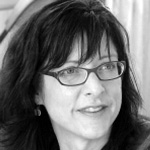
Lisa Margonelli writes about the global culture and economy of energy. Her book about the oil supply chain, Oil On the Brain: Petroleum’s Long Strange Trip to Your Tank, was published by Nan Talese/Doubleday in 2007. Recognized as one of the 25 Notable Books of 2007 by the American Library Association, Oil On the Brain also won a 2008 Northern California Book Award for general nonfiction.
Ms. Margonelli has been published in The Atlantic, New York Times online, Washington Post, Los Angeles Times, San Francisco Chronicle, Wired, Discover, Salon, Business 2.0, San Francisco Magazine, and California Monthly, among other publications. Her column, “Money Tales,” which combined economics and oral history in the San Francisco Chronicle online, won an Excellence in Journalism award from the Northern California Society of Professional Journalists in 2003. In 1999-2000, she was awarded a Sundance Fellowship. She is a graduate of Yale University.
As director of the New America Foundation Energy Policy Initiative, Ms. Margonelli’s work includes an examination of the promise and possibility of the post-oil world and California’s unique opportunity to benefit from new technologies and policies. She is also looking at the unexpected complications of alternative fuels and energy efficiency.
Mike Tidwell is founder and director of the Chesapeake Climate Action Network, a grassroots nonprofit dedicated to raising awareness about the impacts and solutions associated with global warming in Maryland, Virginia, and DC. He is also an author and filmmaker. Tidwell received the Audubon Naturalist Society’s prestigious “Conservation Award.”
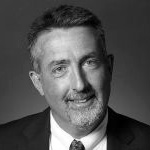
Mike Tidwell is founder and director of the Chesapeake Climate Action Network, a grassroots nonprofit dedicated to raising awareness about the impacts and solutions associated with global warming in Maryland, Virginia, and DC.
He is also an author and filmmaker who predicted in vivid detail the Katrina hurricane disaster in his 2003 book Bayou Farewell: The Rich Life and Tragic Death of Louisiana’s Cajun Coast. His newest book, focusing on Katrina and global warming, is titled The Ravaging Tide: Strange Weather, Future Katrinas, and the Coming Death of America’s Coastal Cities. Tidwell’s most recent documentary film, We Are All Smith Islanders, vividly depicts the dangers of global warming Maryland, Virginia, and D.C.
In 2003, Tidwell received the Audubon Naturalist Society’s prestigious “Conservation Award.” Two years later he received an honorary Doctorate of Letters from Nicholls State University in Thibodaux, Louisiana.
Casey DeMoss Roberts works to develop and implement water resource campaigns and advance GRN public policy positions through public education and mobilization, including organizing outreach events and workshops. Casey has worked on climate and energy related issues for several years with both national and regional groups.
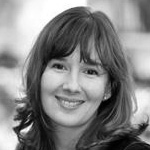
Casey DeMoss Roberts works to develop and implement water resource campaigns and advance GRN public policy positions through public education and mobilization, including organizing outreach events and workshops. Casey received her BS in Psychology from the University of Texas at Austin with a minor in biology and her Master’s of Public Health from the Tulane University School of Public Health and Tropical Medicine. Casey has worked on climate and energy related issues for several years with both national and regional groups.
Diarmuid joined Tesla in 2006, and currently serves as the Vice President of Business Development in which capacity he manages commercial relationships and all aspects of government affairs. Before joining Tesla, Diarmuid served as Chief of Staff for Political Military Affairs at the US State Department, where he was involved in policy and operational support to the U.S military in various theaters of operation.
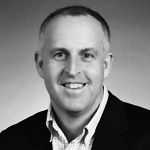 Diarmuid joined Tesla in 2006, and currently serves as the Vice President of Business Development in which capacity he manages commercial relationships and all aspects of government affairs. Before joining Tesla, Diarmuid served as Chief of Staff for Political Military Affairs at the US State Department, where he was involved in policy and operational support to the U.S military in various theaters of operation.
Diarmuid joined Tesla in 2006, and currently serves as the Vice President of Business Development in which capacity he manages commercial relationships and all aspects of government affairs. Before joining Tesla, Diarmuid served as Chief of Staff for Political Military Affairs at the US State Department, where he was involved in policy and operational support to the U.S military in various theaters of operation.
Before his tenure in Washington, Diarmuid worked in corporate strategy as a management consultant for Accenture, as a founder of educational software developer, Real Time Learning, and as a senior executive with both McCann Erickson Worldwide and Young and Rubicam. Over the course of his career, he has managed international operations, projects and marketing for such brands as Coca Cola, Gillette, and AT&T, among others.
Diarmuid has earned a bachelor’s degree from Dartmouth College, a master’s degree in Foreign Policy from the University of Virginia, and an MBA from Kellogg. He lives with his wife and two children in the Bay Area and escapes to the mountains whenever possible..
Klaus Lackner is the Ewing Worzel Professor of Geophysics at Columbia University, where he is also the Director of the Lenfest Center for Sustainable Energy, the Chair of the Department of Earth and Environmental Engineering, and a member of the Earth Institute faculty.
.
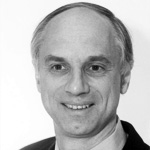 Klaus Lackner is the Ewing Worzel Professor of Geophysics at Columbia University, where he is also the Director of the Lenfest Center for Sustainable Energy, the Chair of the Department of Earth and Environmental Engineering, and a member of the Earth Institute faculty. Lackner’s current research interests include carbon capture and sequestration, air capture, energy systems and scaling properties (including synthetic fuels and wind energy), energy and environmental policy, lifecycle analysis, and zero emission modeling for coal and cement plants.
Klaus Lackner is the Ewing Worzel Professor of Geophysics at Columbia University, where he is also the Director of the Lenfest Center for Sustainable Energy, the Chair of the Department of Earth and Environmental Engineering, and a member of the Earth Institute faculty. Lackner’s current research interests include carbon capture and sequestration, air capture, energy systems and scaling properties (including synthetic fuels and wind energy), energy and environmental policy, lifecycle analysis, and zero emission modeling for coal and cement plants.
Lackner’s scientific career started in the phenomenology of weakly interacting particles. While searching for quarks, he and George Zweig developed the chemistry of atoms with fractional nuclear charge. He participated in matter searches for particles with a non-integer charge in an experiment conducted at Stanford by Martin Perl and his group. After joining Los Alamos National Laboratory (LANL) in 1983, Lackner became involved in hydrodynamic work and fusion-related research. He was a scientist in the Theoretical Division, but also an active part of the Laboratory’s upper management. He was instrumental in forming the Zero Emission Coal Alliance and was a lead author in the IPCC Report on Carbon Capture and Storage. In 2001, Lackner joined Columbia University and, in 2004, became a member of Global Research Technologies, LLC.
Lackner earned his degrees from Heidelberg University, Germany: the Vordiplom, (equivalent to a B.S.) in 1975; the Diplom (or M.S.) in 1976; and his Ph.D. in theoretical particle physics, summa cum laude, in 1978. He was awarded the Clemm-Haas Prize for his outstanding Ph.D. thesis at Heidelberg University. Lackner held postdoctoral positions at the California Institute of Technology and the Stanford Linear Accelerator Center before beginning his professional career, and he attended Cold Spring Harbor Summer School for Computational Neuroscience in 1985. Lackner was also awarded the Weapons Recognition of Excellence Award in 1991 and the National Laboratory Consortium Award for Technology in 2001.
David Johnson is a professor at American University, former director and board member of the Institute of Maritime History, a non-profit dedicated to the preservation and documentation of archaeological remains related to maritime history. The IMH is currently working in the Gulf on mitigating the effects of the disaster on submerged cultural resources, namely underwater archaeological sites and historical shipwrecks.
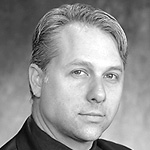
David Johnson is a professor at American University, former director and board member of the Institute of Maritime History, a non-profit organization dedicated to the preservation and documentation of archaeological remains related to maritime history. The IMH is currently working with state historic preservation officers in the Gulf on mitigating the effects of the disaster on submerged cultural resources, namely underwater archaeological sites and historical shipwrecks.
Using guitar effects and a looping machine, classically trained violist Christen Lien performs original compositions on viola. Spontaneously creating then incorporating layers of live effects, Lien paints music with guitar effect pedals, live looping, melodic mixing and expressive performance. For TEDxOilSpill, Lien will debut a song inspired by her recent trip to the Gulf Coast, in response to the oil spill.

Using guitar effects and a looping machine, classically trained violist Christen Lien performs original compositions on viola that are a beautiful mixture of East and West, classical and postmodern, acoustic and electronic.Spontaneously creating then incorporating layers of live effects, Lien paints music with guitar effect pedals, live looping, melodic mixing and expressive performance. For TEDxOilSpill, Lien will debut a song inspired by her recent trip to the Gulf Coast, in response to the oil spill.
Lien’s debut album is called ‘Vol. I: Battle Cry’ and it reflects a 24-year journey of challenging and expanding classical Viola expression, taking it to a new level. She was recently showcased on Oprah Radio and on NPR’s KPCC in Los Angeles, to discuss her unique method of composing and performing, as well as the motivation and backstory of each song from ‘Vol. I: Battle Cry,’ an album dedicated to the “fierce urgency of now.”
Lien is also recognized for the use of her song “15 Aftermaths” in the acclaimed video “Midway. Message From the Gyre.’ in collaboration with award-winning photographer Chris Jordan. The video, which depicts how plastic pollution has affected the albatross birds of the remote island of Midway Atoll in the North Pacific, has received accolades for the increased awareness the project has brought to the issue of plastic pollution.
Always placing meaning and thoughtfulness about the human condition as the foundation of her creative work, Lien is often found in dialogue with her audience and fans about global issues of our time.
Recently Lien was recruited to share her understanding of Harmony with an audience of rocket scientists and engineers from NASA, she was part of the Youth Delegation at Governor Schwarzenegger’s Global Climate Summit to discuss the role of artists in the climate change movement, and spent time with the indigenous Achuar tribe of the Amazon rainforest to better understand how the tribes of the Amazon fight the deforestation challenges due to the pressure of multi-national oil companies for the coveted resources that lie beneath the rainforest.
Lien recently released an acclaimed music video for the song ‘Unabi’ (translates to “flash of light” in Zulu) which features the abandoned auto factories of Detroit and the acclaimed “Detroit Industry” fresco cycle mural by Diego Rivera.
In her words, the inspiration behind ‘Vol. I: Battle Cry':
“VOL. I: BATTLE CRY is a musical depiction of the emotional journey we each take to unlock our power. I wrote this album to support you in finding and releasing your battle cry in a moment in time when we are faced with what Dr. Martin Luther King Jr. described as the “fierce urgency of now” — when our vigilance or neglect determines the fate of generations. In each of us lives a unique passion – a dream that wants to be worked into reality. It is critical for your dream to be manifested, for your gift to be given, for your power to be brought forth if we are to rise together and overcome our collective challenges. My dream is that this music will support you, as you step into your power and offer all you have to give.”
Elizabeth Coffman and Ted Hardin are filmmakers who have recorded the environmental crisis in southern Louisiana for the last seven years. Working with Louisiana poet Martha Serpas, their documentary, “Veins in the Gulf,” highlights the community of scientists, engineers and artists trying to save the productive bayou region.
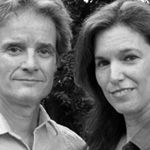
Elizabeth Coffman and Ted Hardin are filmmakers who have recorded the environmental crisis in southern Louisiana for the last seven years. Working with Louisiana poet Martha Serpas, their documentary, “Veins in the Gulf,” highlights the community of scientists, engineers and artists trying to save the productive bayou region from a series of recent disasters–relentless coastal erosion, hurricanes, and oil spills.
Elizabeth and Ted are college professors interested in communities recovering from disaster and trauma. Their last feature, “One More Mile: A Dialogue on Nation-Building” investigated the post-war situation in Bosnia-Herzegovina and the collision between international workers and communities trying to heal after the devastating wounds of genocide.
Elizabeth has published scholarship on early film, documentary media and violence. She writes a column about being a “Long Distance Mom” for Inside Higher Ed and teaches at Loyola University Chicago. Ted has produced work for Paper Tiger Television, German television and published on film and video assessment. He teaches at Columbia College Chicago.
They drive to Louisiana on 100% biodiesel fuel produced by Loyola University Chicago students.
Leroy Stick is the pseudonymous humorist behind @BPGlobalPR, the Twitter account that has satirized BP’s statements to the public and in the process, given a way for those frustrated by the oil spill to vent their anger with humor. He has over 160,000 followers on Twitter and continues to spread satire in order to raise awareness to the actions of BP and those responding to the spill.

Leroy Stick is the pseudonymous humorist behind @BPGlobalPR, the Twitter account that has satirized BP’s statements to the public and in the process, given a way for those frustrated by the oil spill to vent their anger with humor. He has over 160,000 followers on Twitter and continues to spread satire in order to raise awareness to the actions of BP and those responding to the spill.
 Sylvia Earle, Mission Blue Read full bio
Sylvia Earle, Mission Blue Read full bio Philippe Cousteau, EarthEcho Read full bio
Philippe Cousteau, EarthEcho Read full bio David Gallo, Woods Hole Institution Read full bio
David Gallo, Woods Hole Institution Read full bio Susan Shaw, Marine Environmental Research Institute
Susan Shaw, Marine Environmental Research Institute  Andrew Sharpless, Oceana Read full bio
Andrew Sharpless, Oceana Read full bio Wolcott Henry, Munson Foundation and Marine Photobank Read full bio
Wolcott Henry, Munson Foundation and Marine Photobank Read full bio Amory Lovins, Rocky Mountain Institute Read full bio
Amory Lovins, Rocky Mountain Institute Read full bio Phil Radford, Greenpeace Read full bio
Phil Radford, Greenpeace Read full bio Carl Safina, Blue Ocean Institute Read full bio
Carl Safina, Blue Ocean Institute Read full bio Reid Detchon, UN Foundation Read full bio
Reid Detchon, UN Foundation Read full bio Ronald Atlas, University of Louisville Read full bio
Ronald Atlas, University of Louisville Read full bio Jigar Shah, Carbon War Room Read full bio
Jigar Shah, Carbon War Room Read full bio John Francis, Planetwalk, National Geographic Read full bio
John Francis, Planetwalk, National Geographic Read full bio Darron Collins, World Wildlife Fund Read full bio
Darron Collins, World Wildlife Fund Read full bio Mike Mendez, Sapphire Energy Read full bio
Mike Mendez, Sapphire Energy Read full bio Jackie Savitz, Oceana Read full bio
Jackie Savitz, Oceana Read full bio Jim Geringer, ESRI Read full bio
Jim Geringer, ESRI Read full bio Lisa Margonelli, New America Foundation Read full bio
Lisa Margonelli, New America Foundation Read full bio Mike Tidwell, Chesapeake Climate Action Network Read full bio
Mike Tidwell, Chesapeake Climate Action Network Read full bio Casey DeMoss Roberts, Gulf Restoration Network Read full bio
Casey DeMoss Roberts, Gulf Restoration Network Read full bio Diarmuid O’Connell, Tesla Motors Read full bio
Diarmuid O’Connell, Tesla Motors Read full bio Klaus Lackner, Columbia University Read full bio
Klaus Lackner, Columbia University Read full bio David Johnson, Institute of Maritime History Read full bio
David Johnson, Institute of Maritime History Read full bio Christen Lien, Violist and Composer Read full bio
Christen Lien, Violist and Composer Read full bio Elizabeth Coffman, Ted Hardin,
Elizabeth Coffman, Ted Hardin, Leroy Stick, @BPGlobalPR Read full bio
Leroy Stick, @BPGlobalPR Read full bio